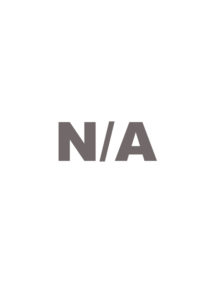
South Africa
Most products entering the South Africa market must meet the relevant requirements of the authorities depending on the product scope. Product safety requirements and regulations are put in place to reduce risks, improve quality of life and ensure safety during use.
Regulator
Radio Approval
Telecom Approval
Regulatory Agency
Independent Communications Authority of South Africa (ICASA)
Accepted Route
EU Test Reports
EU Test Reports
Regulator
Energy Efficiency
Regulatory Agency
National Regulator for Compulsory Specifications (NRCS)
Accepted Route
EU Test Reports
Regulator
EMC
Regulatory Agency
South African Bureau of Standards (SABS)
Accepted Route
EU Test Reports
- Telecom Approval
-
Regulator
Radio Approval
Telecom ApprovalRegulatory Agency
Independent Communications Authority of South Africa (ICASA)
Accepted Route
EU Test Reports
EU Test Reports - Safety
-
Regulator
Energy Efficiency
Regulatory Agency
National Regulator for Compulsory Specifications (NRCS)
Accepted Route
EU Test Reports
- EMC
-
Regulator
EMC
Regulatory Agency
South African Bureau of Standards (SABS)
Accepted Route
EU Test Reports
The Best Solution For Your Business
Market access information by category
Telecom & Wireless
Electrical Safety
Energy Efficiency
Plug type

OUR TERRITORIAL PROGRAMMES
We fully understands the local requirements and procedures applicable in South Africa. You can rely on our expertise and knowledge to help you access key markets efficiently while at the same time, be assured of our objectivity, integrity and professionalism.
Independent Communications Authority of South Africa (ICASA)
ICASA is responsible for regulating the telecommunications, broadcasting and postal industries in the public interest and ensure affordable services of a high quality for all South Africans. It also issues licences to telecommunications and broadcasting service providers, enforces compliance with rules and regulations, protects consumers from unfair business practices and poor quality services, hears and decides on disputes and complaints brought against licensees, and controls and manages the effective use of radio frequency spectrum.

National Regulator for Compulsory Specifications (NRCS)
The National Regulatory Compulsory Specifications (NRCS) is established in terms of the National Regulator for Compulsory Specifications Act, 2008 (Act No. 5 of 2008).
NRCS is responsible for the administration and maintenance of compulsory specifications and the implementation of a regulatory and compliance systems for compulsory specifications.
The Legal Metrology Act, 2014 (Act No. 9 of 2014) dissolves the board as the Accounting Authority.
South African Bureau of Standards (SABS)
SABS is a leading business services provider to organizations worldwide, offering a range of services for management system certification, product testing and certification, and standardization.
We provide standards that enhance the competitiveness of South Africa, and which are the basis for consumer protection, health, safety and environmental issues. We have more than fifty years of experience in our core function, namely, the development of national standards and the maximization of benefits of the internationalization of standards. Crucial to this process are the more than 450 technical committees and subcommittees administered by the Standards Division of the SABS to produce standards. At present, approximately 6 500 standards are maintained by the Standards Division and new standards are developed at a rate of approximately 500 a year.
Growing environmental awareness and the increasing awareness of quality implies the need for standardized requirements and test methods.
Certificate Sample







